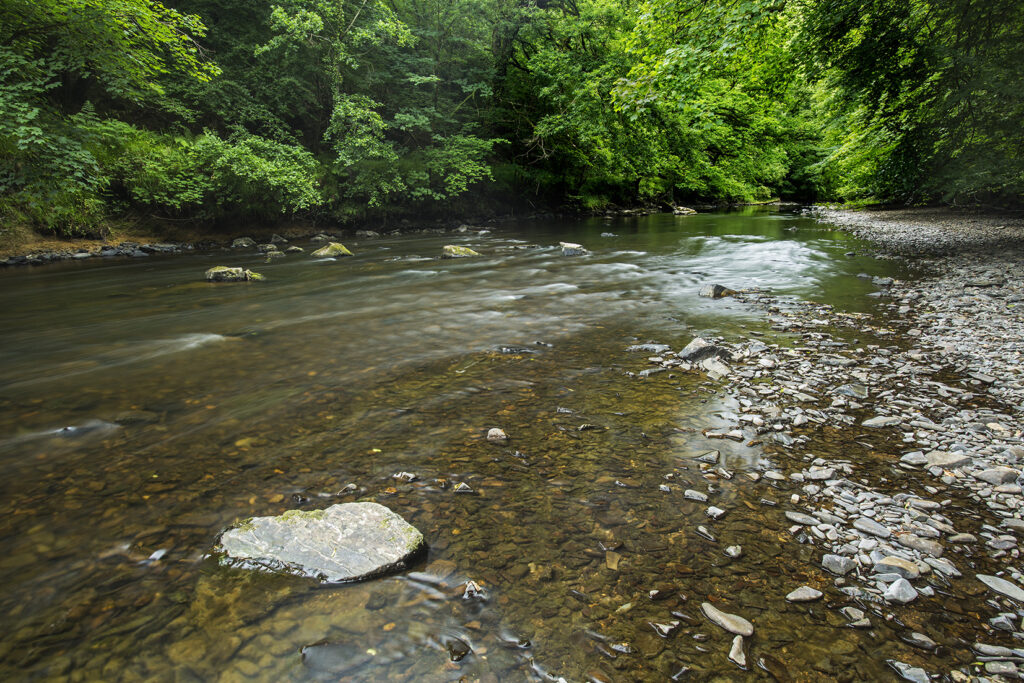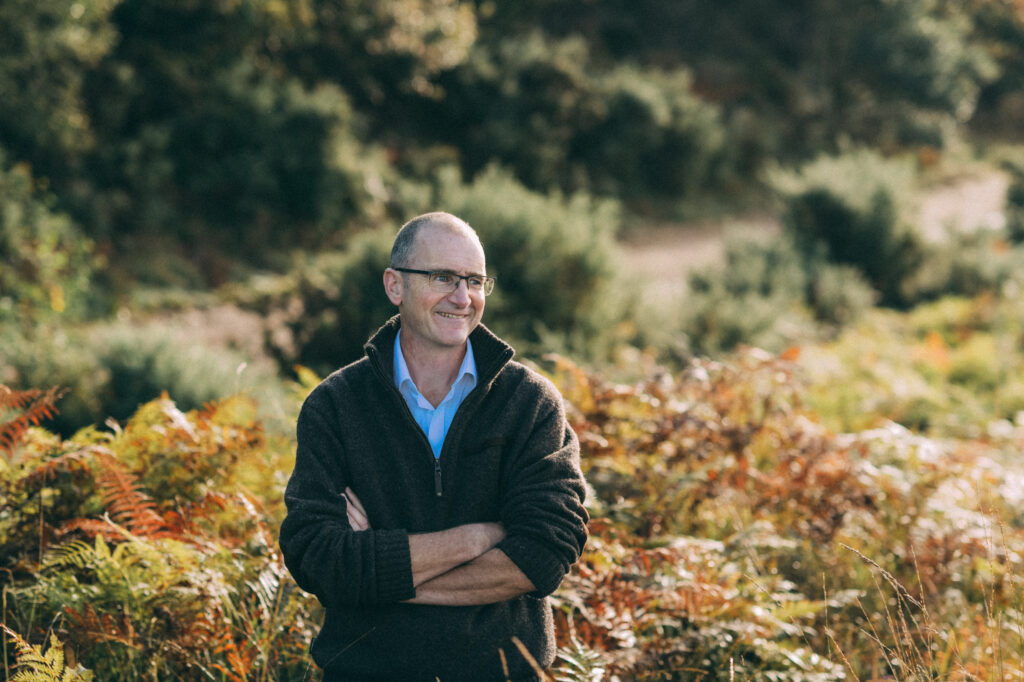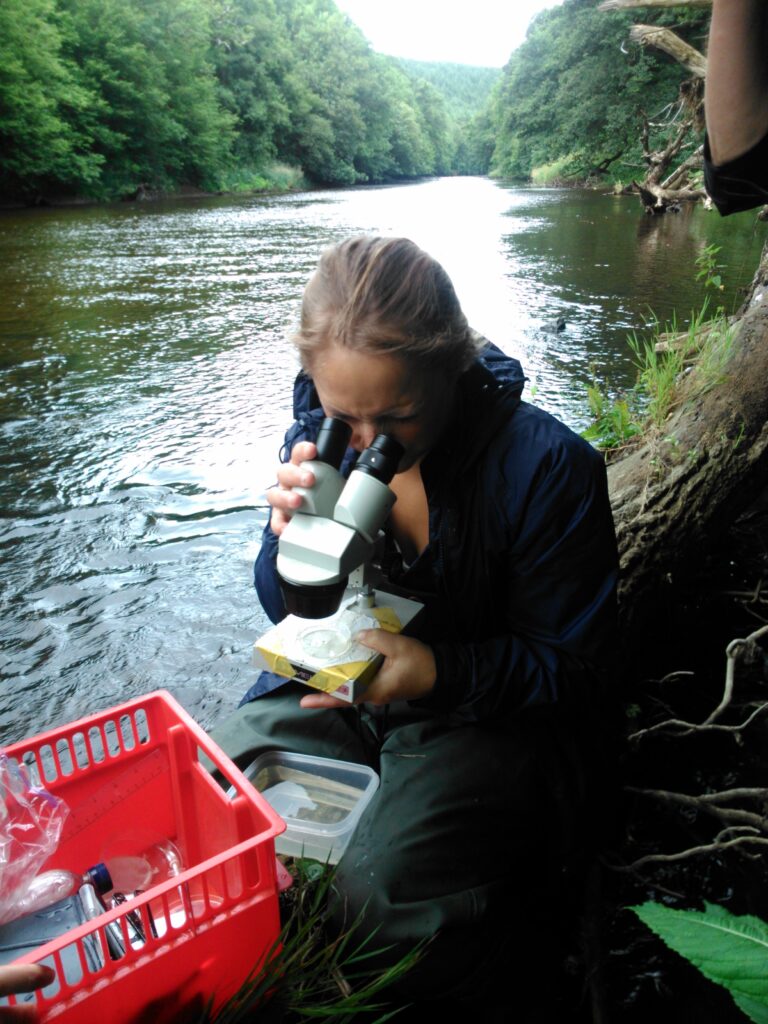A year-long project to carry out a detailed assessment of the water quality on a tributary of the river Torridge is being led by Clinton Devon Estates – using a grant made up of fines paid by water companies for environmental breaches.
More than £200,000 has been awarded to the Estates by the Government’s Rural Payments Agency (RPA) to carry out the monitoring work on the River Mere and two of its catchments that flow into the Torridge in North Devon.

Clinton Devon Estates is working with ball clay mining company Sibelco and Devon Wildlife Trust on the Restoration of the River Mere Catchment project.
Dr Sam Bridgewater, Clinton Devon Estates’ Director of Environment Strategy and Evidence, said the data gathered would be used to draw up restoration plans for up to 60 hectares of land around the river Mere and its tributaries, bringing benefits for water quality and biodiversity.
Monitoring is taking place across around 4,000 hectares to gain a detailed understanding of the impact on water quality of the farming, forestry and mining activities in the area, part of which lies within the UNESCO North Devon Biosphere and the Northern Devon Nature Improvement area. Among the habitats are the globally important culm grasslands.
Dr Bridgewater said: “Whenever there’s an opportunity to do more for nature we try and grasp that…We’ve done a lot of work in East Devon with the Lower Otter Restoration Project and now the Heaths to Sea Landscape Recovery Project.
“This is an opportunity to do something in North Devon – which we have wanted to do for some time. There are some lovely water courses, and this is the starting point to really understand what’s going on there and come up with some plans to make things better.”

Specialist business Fluvio are carrying out monitoring and catchment modelling, using special devices called sondes that collect information about the chemical make-up of water, along with monthly spot sampling.
Based on this data and other information, Fishtek, who are river restoration experts, are looking at opportunities for habitat and wildlife enhancement.
From the results of their work, Dr Bridgewater said advice would be given on potential changes in land management practices that could bring benefits for wildlife and water quality, both locally and further downstream in the river Torridge.
Further work could follow if financial support is available for a habitat restoration project, bringing significant benefits for important species including salmon and trout and the rare freshwater pearl mussel, which can only breed in exceptionally clean rivers.
Dr Bridgewater said: “During the course of this first project people will be going out doing some targeted land management advice if we think it’s needed. To do the restoration we will need to go for a development grant.”
But he said it was essential to first gather all the data. “At the end of the day we’ll have more data on the river Mere and its catchments; we’ll know what kind of life it’s supporting, what the habitats are around it, what the quality of the water is, how that water quality changes over time and so on.”
Ewan Wallis is managing the project for Devon Wildlife Trust. He praised Clinton Devon Estates’ for leading the initiative and working with DWT and Sibelco. He said the project would provide important data and create a detailed habitat restoration plan.

“Gathering the data is definitely a big part of the project,” he said. “Four sondes have gone in, and we have contractors looking at catchment modelling – how the water moves. The Lower Mere has been heavily modified over time and is now almost canalised. The ultimate goal in due course will be to significantly restore the habitat, working with all land managers in the region.”
He said the project is part of a more extensive programme by DWT, working with landowners, land managers and farmers, called Northern Devon Natural Solutions. It is being worked on by Ewan and four DWT farm advisers, with Izzy Moser leading on land engagement for the Restoration of the River Mere Catchment project.
A spokesperson from Sibelco, which operates a Ball Clay quarry at Peters Marland, near Great Torrington, said the company had embraced the opportunity to work with Clinton Devon Estates and Devon Wildlife Trust on the project.
“Ball Clay mining in North Devon has been part of the community for 300 years and the quarry at Peters Marland is an important component of the local landscape and ecosystem,” they said.
“Quarries offer a unique opportunity for ecological diversity and improvement as a result of the changing land uses over time – from active extraction areas and progressive restoration through to final restoration.
“Management of water across land use boundaries will continue to become increasingly important in the future and it is considered that this project will provide a wider understanding of the local and wider water environment and support steps that could be taken to not only improve the status of the watercourses but also to future proof our operations in an increasingly sustainable manner.”
